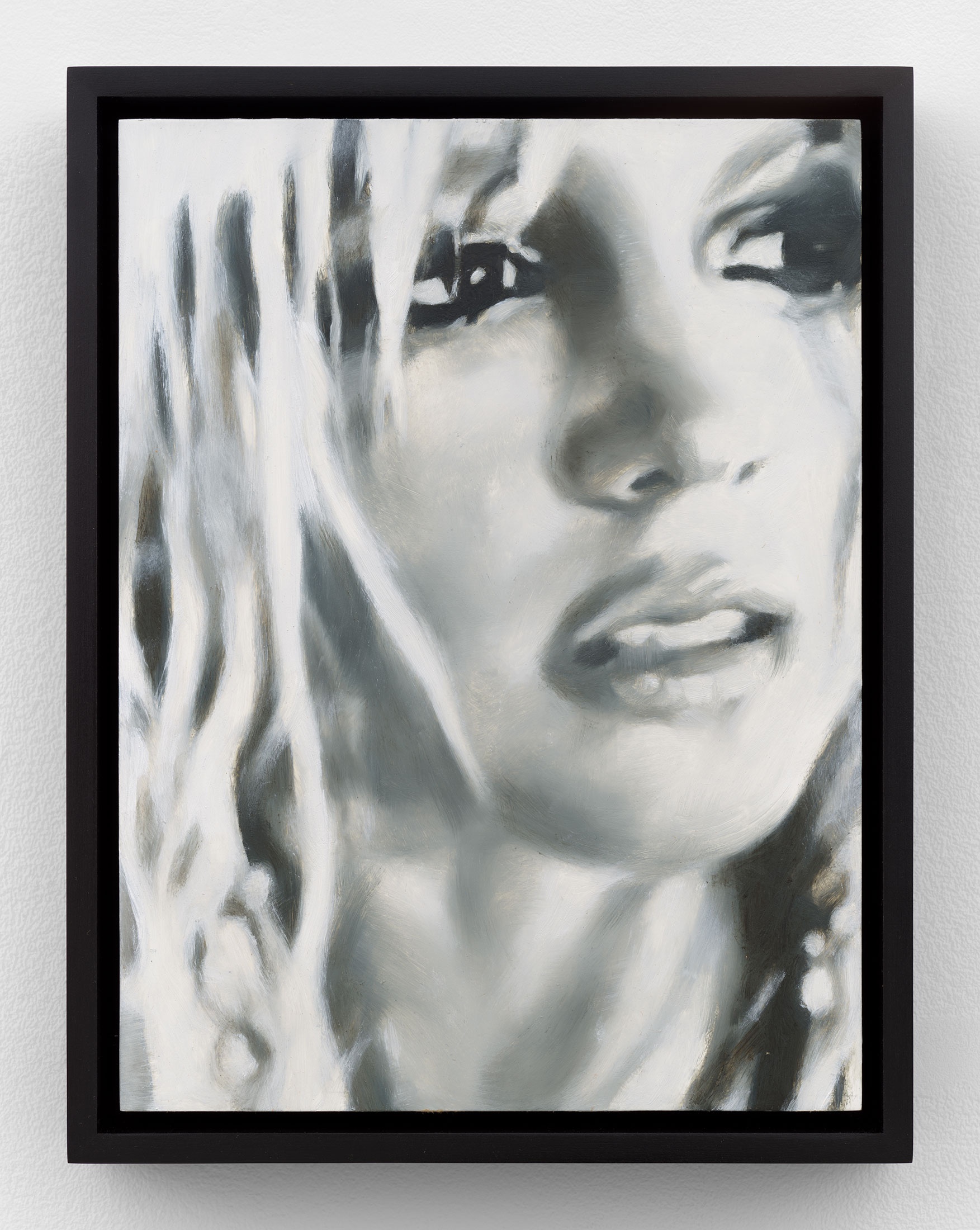Judith Eisler
"Onstage," Britney Spears once said, "I'm the happiest person in the world." The undated quote is one of either unsuspecting optimism (Britney before 2007, before the conservatorship, before Vegas) or profound sadness. Eisler's portrait of the pop star is similarly difficult to place, appearing as an image of unguarded vulnerability. The still on which the work is based, however, is taken from the 2001 musical video I'm a Slave 4 U, which portrays the singer as perfectly invulnerable – young, famous, insensible to her coming demise. This narrative mis-seeing is primary in Eisler's portraits, which study those in-between moments that punctuate onscreen performances, revealing the slippage between famed persona and person. "I want to capture that fleeting moment," Eisler says, "and catch it in a way that it still vibrates and still has possibility." "All I know," Britney sings in the same song, "is I'm so happy when you're dancing there."
b.1962, Newark
With images gleaned from films, music videos, and public broadcasting, Judith Eisler's portraits pair the momentary and monumental. Pausing a television sequence as a subject’s guard falls, she transcribes fleeting intimacies in oil paint, restoring a tenderness to expressions masked by digital interference, moiré patterns, and colour shifts. “I look for a precise instant that embodies an action, an emotion, and a psychological tension,” Eisler says, "in what happens when the temporality of cinema is interrupted and explored with marks of paint." Among the artist’s muses are actresses Tilda Swinton and Jane Forth, politician and activist Alexandria Ocasio-Cortez, and 23-time Grand Slam tennis champion Serena Williams. Pictured with eyes lowered, seen gazing over a shoulder, or glancing questioningly towards the camera, the famed become familiar on Eisler's canvas.
